Month: March 2019
-
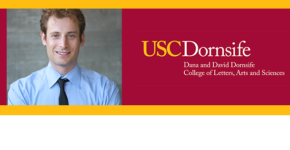
Daniel Benjamin, USC Dornsife College of Letters, Arts and Sciences – Genetics and Academic Achievement
On USC Dornsife Week: Do your genes decide the highest level of education you’ll receive? Daniel J. Benjamin, associate professor of economics, discusses this question. Daniel J. Benjamin’s research is in behavioral economics (which incorporates ideas and methods from psychology into economic analysis) and genoeconomics (which incorporates genetic data into economics). He is an Associate…
-
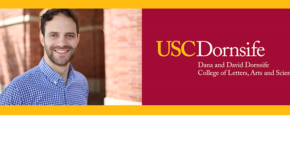
David Newman, USC Dornsife College of Letters, Arts and Sciences – Conservatives Report Greater Meaning In Life
On this Student Spotlight during USC Dornsife Week: Social conservatives find the most meaning in life. David Newman, PhD. Candidate in social psychology, looks into why. David B. Newman is a Ph.D. candidate in social psychology at the USC Dornsife College of Letters, Arts and Sciences and is a member of the USC Dornsife Mind…
-
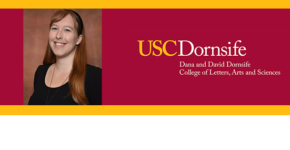
Megan Carroll, USC Dornsife College of Letters, Arts and Sciences – Incidental Activists
On this Student Spotlight during USC Dornsife Week: Not all activism happens in the streets. Megan Carroll, PhD candidate in sociology, looks at “incidental activism.” Megan Carroll is a PhD Candidate in sociology at the USC Dornsife College of Letters, Art and Sciences, specializing in gender, sexuality, family, and social movements. Her research projects range…
-
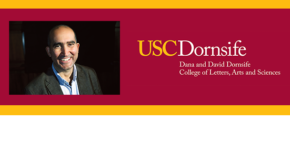
Moh El-Naggar, USC Dornsife College of Letters, Arts and Sciences – Microorganisms
On USC Dornsife Week: Not all big ideas are about big things. Moh El-Naggar, professor of physics and astronomy, discusses how something small could help us think big. Moh El-Naggar is the Robert D. Beyer Early Career Chair in Natural Sciences, and Professor of Physics, Biological Sciences, and Chemistry at the University of Southern California…
-
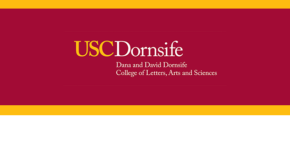
USC Dornsife Week on The Academic Minute (2019.03.18)
USC Dornsife Week on The Academic Minute 2019.03.18 Monday, March 18th Moh El-Naggar discusses how microorganisms could help us think big. Tuesday, March 19th Megan Carroll digs how gay fathers can be incidental activists. Wednesday, March 20th David Newman explores which political group finds the most meaning in life. Thursday, March 21st Daniel Benjamin examines…
-
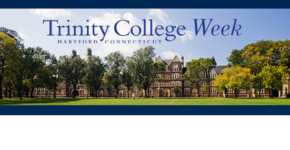
The Academic Minute for 2019.03.11-03.15 – Trinity College Week
The Academic Minute from 03.11 – 03.15 Monday, March 11th Elizabeth Casserly – Trinity College Vision and Communication Elizabeth Casserly began her study of human language and cognition as an undergraduate Linguistics major at Yale University. Since then, she has volunteered as a research assistant for a speech-oriented group of electrical engineers at MIT, worked…
-
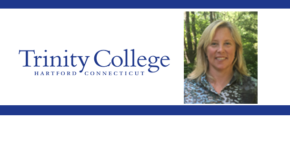
Susan Masino, Trinity College – Ketogenic Diet
On Trinity College Week: Can your diet help you avoid epileptic seizures? Susan Masino, professor of applied science, looks into this question. Dr. Masino is the Vernon Roosa Professor of Applied Science at Trinity College and a joint appointment in Neuroscience and Psychology. Her research focuses on promoting and restoring brain health, with a particular…
-
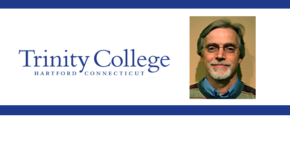
Dan Lloyd, Trinity College – Music As The Language of the Brain
On Trinity College Week: Does your brain speak in music? Dan Lloyd, professor of philosophy, discusses how repetition is shared between the language of music and our brains. Dan Lloyd wonders how our gray and squishy brains could be the location of the symphonic kaleidoscope of human consciousness. For centuries this question was the province…
-
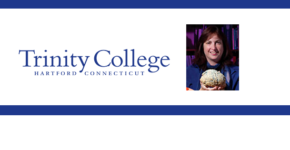
Sarah Raskin, Trinity College – Prospective Memory
On Trinity College Week: Where are my keys again? Sarah Raskin, professor of psychology and neuroscience, discusses how different disorders affect memory and which treatments can be effective. Professor Sarah Raskin graduated from Johns Hopkins in 1984 with a B.A. in Behavioral Biology and from the City University of New York Graduate Center in 1990…
-
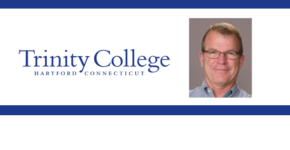
William Church, Trinity College – Cell Death and Parkinson’s Disease
On Trinity College Week: To help fight Parkinson’s disease, catch it earlier. William Church, associate professor of chemistry and neuroscience, examines the importance of early detection. Professor Church grew up in Virginia and received a B.S. in Chemistry at James Madison University. After taking a year off to work in a hospital where he realized…
